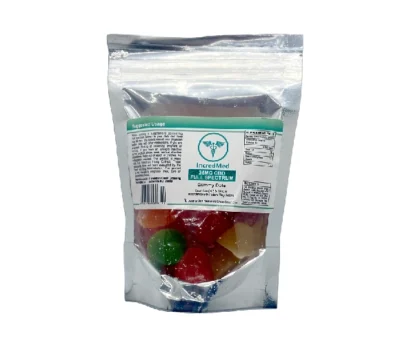Outsourcing supplement production to a trusted and qualified supplement manufacturer is an increasingly popular option for companies wanting to reduce costs, save time, and ensure the quality of their products. For both new companies getting started and established businesses looking to expand their offerings, outsourcing the production of their supplements offers a range of tangible benefits. Not only does working with an experienced manufacturer help ensure that products maintain the highest possible quality and safety standards, but it also gives companies the opportunity to cost-effectively produce supplements that meet the specific needs of their customers. In this article, we will discuss the many benefits of outsourcing your supplement production to a third-party supplement manufacturer, as well as key factors to consider before making a final decision.
What To Look For When Choosing A Supplement Manufacturer?
When selecting a supplement manufacturer, one of the most important considerations is its ability to offer a range of trusted, high-quality ingredients. This includes sourcing ingredients from trusted suppliers, testing for purity and potency, inspecting incoming shipments, and implementing stringent quality control measures throughout the manufacturing process. Additionally, the manufacturer should have the technical capabilities to handle a wide range of production requirements, from tablet and capsule production to specialty blends and liquid dosages.
How To Ensure Quality With A Supplement Manufacturer?
A trusted manufacturer will take extra precautions to ensure the safety and quality of the supplements they produce. Many supplement manufacturers employ in-house chemists to perform quality assurance tests, examine raw materials for contaminants, and inspect the finished products for compliance with regulatory and international standards. The manufacturer should also have comprehensive quality management procedures in place to ensure that each step of the production process meets their high standards. Furthermore, the manufacturer should be willing and able to share comprehensive documentation detailing the measures they take to ensure quality and safety.
Types Of Supplement Manufacturing Services
- Private Label Manufacturing: Private label manufacturing services assist businesses with the design, creation, and branding of their own products. With the help of private label services, businesses can develop unique products with their own branded labels, packaging, and formulas.
- Contract Manufacturing: Contract manufacturing services offer businesses a full range of supplement production services, from raw materials sourcing and formulation to distribution and marketing. These services are often used when a business has a clear vision for their product, but lacks the capacity or resources to bring the product to market on their own.
- Custom Formulation Services: Custom formulation services are used when existing formulas cannot meet the consumer’s needs. With the help of a consultant or research and development team, supplement manufacturers will work closely with the customer to create a customized formula that is both effective and cost-effective.
- Packaging and Labeling Services: Packaging and labeling services are essential in the supplement industry as they help ensure that products are safe and meet regulatory requirements. Supplement manufacturers offer services that include designing labelling and packaging, selecting the appropriate materials for packaging, and managing the fulfillment process.
- Testing and Quality Control Services: Testing and quality control services help ensure that customers are getting the highest quality supplements. Supplement manufacturers provide a range of testing and quality control services, including verifying the identity and potency of ingredients, as well as testing for contaminants and impurities.
Factors To Consider When Choosing A Supplement Manufacturer
When selecting a supplement manufacturer, there are several factors to consider. Price is obviously an important factor; however, companies should also be sure to compare pricing structures, such as minimum order requirements, order volumes, and setup fees. In the long run, the cheapest option may not end up being the most cost-effective. Companies should also investigate the manufacturer’s delivery times, return and exchange policies, and quality assurance measures. Additionally, it’s important to get a clear understanding of the types of services offered by the manufacturer and any additional services that may be available.
Essential Components Of A Good Supplement Manufacturer
The essential components of a good supplement manufacturer include high-quality ingredients, comprehensive quality control and assurance processes, and stringent compliance with applicable industry standards. Additionally, experienced manufacturers should have well-established distribution channels, as well as reliable customer service and technical support teams to address any issues that may arise. Furthermore, they should have a proven track record in the supplement manufacturing industry, and a staff with the experience and skills to produce high-quality results.
Best Practices For Working With A Supplement Manufacturer
When working with a supplement manufacturer, companies should ensure that there are clear lines of communication in place from the outset. Be sure to discuss project timelines, production assumptions, expected costs, and practical issues such as shipping arrangements. Companies should also have a consistent point-of-contact both on their team and at the manufacturer to address any questions or concerns in a timely manner. Furthermore, companies should discuss the option of having a representative on-site to observe and monitor the production process.
Conclusion
Outsourcing the production of supplements to a trusted and experienced manufacturer can offer companies tangible advantages in terms of cost savings, time savings, and product quality. As a result, it’s important to take the time to select the right supplement manufacturer. Companies should look for a manufacturer that offers a wide range of high-quality ingredients, employs rigorous quality assurance processes, and is compliant with all applicable standards. Additionally, companies should weigh the production costs and possible additional services offered by the supplement manufacturer, ensuring that there are clear lines of communication in place before committing to a partnership. By following these best practices and tips, companies can ensure that they are working with a manufacturer that will help them produce the safest and most effective supplements for their customers.

Sharon Bartlett is a Registered Dietitian Nutritionist based in Florida. She is passionate about educating others about the importance of making nutritious food choices and promoting healthy eating behaviors. With a background in clinical, community, and Wellness nutrition, she is adept at addressing the diverse needs of individuals and families. Her expertise in food and nutrition makes her the go-to person to bridge the gap between general wellness and specific dietary concerns. She loves to share her enthusiasm for whole-food nutrition with her blog readers and provide practical tips for everyday living.





